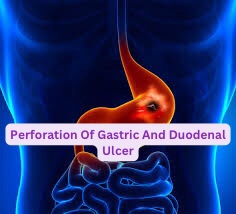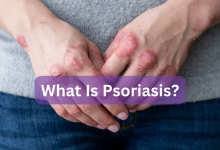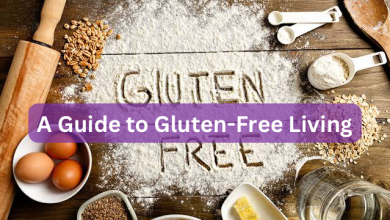Deadly Ulcer: Perforation Of Gastric And Duodenal Ulcer

Perforation of gastric and duodenal ulcers is a serious medical condition that requires prompt diagnosis and treatment. In this blog post, we will discuss the causes, symptoms, diagnosis, and treatment options available for perforated gastric and duodenal ulcers.
Gastric and duodenal ulcers are open sores that develop in the lining of the stomach or the first part of the small intestine known as the duodenum. These ulcers can be caused by various factors, including bacterial infections, the use of nonsteroidal anti-inflammatory drugs (NSAIDs), excessive alcohol consumption, and smoking.
The most common cause of gastric and duodenal ulcers is the Helicobacter pylori (H. pylori) bacteria. This bacterium is present in the stomach of nearly 50% of the world’s population, and it can cause inflammation and damage to the stomach lining, leading to the formation of ulcers.
Symptoms
Perforation occurs when the ulcer breaks through the wall of the stomach or duodenum, allowing stomach acid and other digestive juices to leak into the abdominal cavity. This can cause a range of symptoms, including sudden, severe abdominal pain, nausea, and vomiting.
Other symptoms may include bloating, abdominal distension, tenderness in the abdomen, a rigid or board-like abdomen, rapid heart rate, low blood pressure, shortness of breath, and fever. These symptoms require immediate medical attention, as perforation can lead to life-threatening complications such as peritonitis (inflammation of the abdominal cavity) or sepsis (a serious infection that can affect the entire body).
Diagnosis:
Diagnosis of perforated gastric and duodenal ulcers typically involves a physical examination, medical history, and diagnostic tests such as blood tests, X-rays, and CT scans. If perforation is suspected, emergency surgery is required to repair the hole in the stomach or duodenum.
Treatment options:
The primary treatment for perforated gastric and duodenal ulcers is surgery to repair the hole in the stomach or duodenum. The aim of the surgery is to remove any infected tissue and repair the hole, which may involve removing part of the stomach or duodenum.
After surgery, patients will usually be given antibiotics to prevent infection and will need to be monitored closely for signs of complications such as bleeding, infection, or further perforation.
Prevention:
Prevention of gastric and duodenal ulcers involves avoiding risk factors such as excessive alcohol and tobacco consumption, avoiding NSAIDs, and taking steps to manage stress. It’s also important to maintain a healthy diet and avoid eating spicy or acidic foods.
In conclusion, perforation of gastric and duodenal ulcers is a serious medical condition that requires urgent attention. If you experience any of the symptoms mentioned above, seek medical attention immediately. Remember, prevention is key, so take steps to avoid the risk factors that can lead to gastric and duodenal ulcers.







